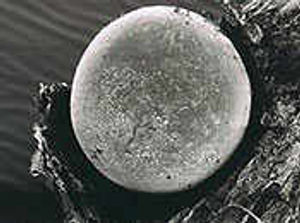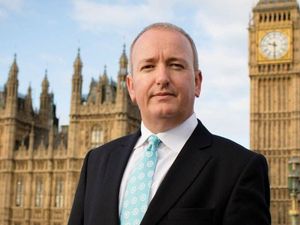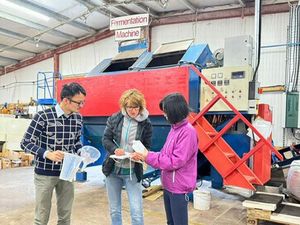Breakthrough on potato parasite
It may be invisible to the naked eye but a microscopic parasite is responsible for the destruction of potato crops across Shropshire, writes Rural Affairs Editor Nathan Rous. It may be invisible to the naked eye but a microscopic parasite is responsible for the destruction of potato crops across Shropshire, writes Rural Affairs Editor Nathan Rous. But now a research scientist, awarded a doctorate by Harper Adams University College this month, is fighting back with fungus. Farmers and food experts are predicting its use could reduce chemical pesticides in potato production and boost availability of organic potatoes in the UK. Dr John Tobin tested the use of the parasite Pochonia chlamydosporia as a biological control agent against potato cyst nematodes (PCN). The nematodes damage the roots of potato crops and reduce yield and quality. Read the full story in today's Shropshire Star

It may be invisible to the naked eye but a microscopic parasite is responsible for the destruction of potato crops across Shropshire, writes Rural Affairs Editor Nathan Rous.
But now a research scientist, awarded a doctorate by Harper Adams University College this month, is fighting back - with fungus.
Dr John Tobin's breakthrough means his natural method of pest control can be used to fight one of potato farmers' biggest enemies.
Farmers and food experts are predicting its use could reduce chemical pesticides in potato production and boost availability of organic potatoes in the UK.
Dr Tobin tested the use of the fungus Pochonia chlamydosporia as a biological control agent against potato cyst nematodes (PCN). The nematodes damage the roots of potato crops and reduce yield and quality.
He said: "The increasing proliferation of PCN in the UK represents a major threat to potato production. It has been estimated that 64 per cent of potato fields are infested with the pest.
"The control of PCN has relied largely on the use of nematicides. Due to concern for their effects on the environment their use has been restricted."
Dr Tobin was appointed to undertake the three-year study to determine the potential of the fungus, which occurs naturally in soil, under field conditions in potato crops. The parasite, which was applied around the potato tuber at planting, proved as effective in reducing PCN multiplication as the nematicide.
David Crump, for BioNem Ltd, has been working with Harper Adams. He said: "We should be able to get a commercial product out to growers within three to four years from now."
By Rural Affairs Editor Nathan Rous




